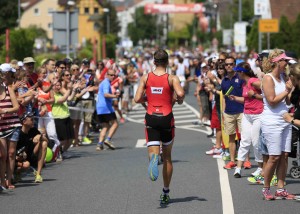 I've just come from the ASICS Frontrunner Annual Meeting, which was of course very cool (pictures will follow), but also brought interesting discussions with experts. Here again some things were confirmed that can be very important for triathletes. I also know it from my own athletes, especially from the outperformers. They not only perfect their training, but also all other areas, including nutrition.
I've just come from the ASICS Frontrunner Annual Meeting, which was of course very cool (pictures will follow), but also brought interesting discussions with experts. Here again some things were confirmed that can be very important for triathletes. I also know it from my own athletes, especially from the outperformers. They not only perfect their training, but also all other areas, including nutrition.
In recent years, based on reports from some professionals, it has been the case that extreme low-carb diets are sometimes followed. Athletes who have a high overall stress load have to be careful here. So not only in training, but also in everyday work and family life
Low-carb diets bring an athlete to overtraining or a chronic state of exhaustion much faster. In addition, due to the low calorie diet, they also reduce training performance, and accordingly, of course, long-term competition performance. From our own experience, long bike rides are usually sufficient to optimize fat burning accordingly. Even on the long distance. The training intensity or the training quality should always have priority.
In addition, what I think is at least as important as good fat burning for long distances is the body's ability to absorb and use food. If you never train this because you always drive with as little food as possible, then stomach and intestinal problems are very likely on the day of the competition. A better absorption capacity of the gastrointestinal mucous membrane can, however, also be trained. Here it is especially useful to get used to food intake during intensive training loads. In other words, with interval bike units, continuous pace runs at the planned race pace. This brings a much better adaptation than if you only eat for loose units. You know it yourself, on basic trips you can also digest the chocolate cake from the baker or, if necessary, a knuckle of pork. However, this has nothing in common with taking in competition food during the race.
Accordingly, please make sure that you consume enough carbohydrates, especially now in the training-intensive months. It doesn't have to be cakes or gummy bears. You can eat health-consciously despite higher KH intake. Potatoes and rice in particular do not only have a high density of macronutrients, i.e. carbohydrates, but also a relatively high density of micronutrients, which is what characterizes natural foods. As a result, you will achieve significantly better results and performance increases during intensive training.
skin in!
krelli

